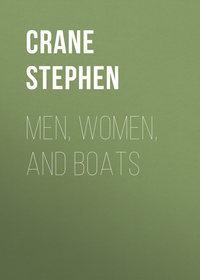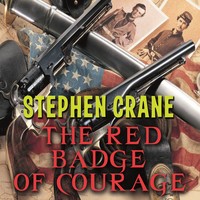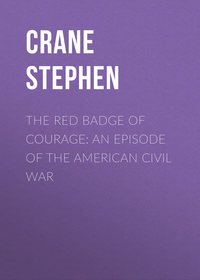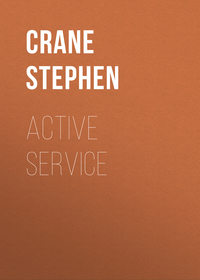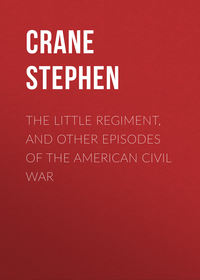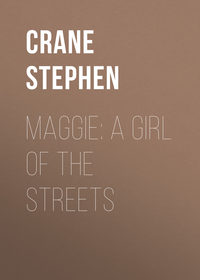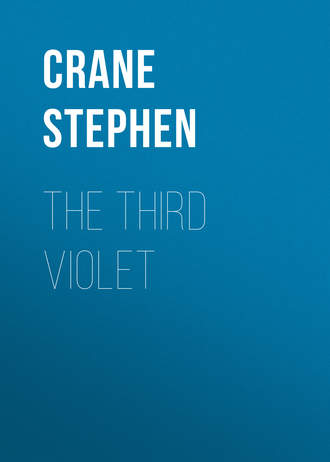 полная версия
полная версияThe Third Violet
"I don't believe a word of it is true," said Miss Worcester.
"What do you expect of autobiography?" demanded Hollanden, with asperity.
"Well, anyhow, Hollie," exclaimed the younger sister, "you didn't explain a thing about how literary men came to be so peculiar, and that's what you started out to do, you know."
"Well," said Hollanden crossly, "you must never expect a man to do what he starts to do, Millicent. And besides," he went on, with the gleam of a sudden idea in his eyes, "literary men are not peculiar, anyhow."
The elder Worcester girl looked angrily at him. "Indeed? Not you, of course, but the others."
"They are all asses," said Hollanden genially.
The elder Worcester girl reflected. "I believe you try to make us think and then just tangle us up purposely!"
The younger Worcester girl reflected. "You are an absurd old thing, you know, Hollie!"
Hollanden climbed offendedly from the great weather-beaten stone. "Well, I shall go and see that the men have not spilled the luncheon while breaking their necks over these rocks. Would you like to have it spread here, Mrs. Fanhall? Never mind consulting the girls. I assure you I shall spend a great deal of energy and temper in bullying them into doing just as they please. Why, when I was in Brussels–"
"Oh, come now, Hollie, you never were in Brussels, you know," said the younger Worcester girl.
"What of that, Millicent?" demanded Hollanden. "This is autobiography."
"Well, I don't care, Hollie. You tell such whoppers."
With a gesture of despair he again started away; whereupon the Worcester girls shouted in chorus, "Oh, I say, Hollie, come back! Don't be angry. We didn't mean to tease you, Hollie—really, we didn't!"
"Well, if you didn't," said Hollanden, "why did you–"
The elder Worcester girl was gazing fixedly at the top of the cliff. "Oh, there they are! I wonder why they don't come down?"
CHAPTER VI
Stanley, the setter, walked to the edge of the precipice and, looking over at the falls, wagged his tail in friendly greeting. He was braced warily, so that if this howling white animal should reach up a hand for him he could flee in time.
The girl stared dreamily at the red-stained crags that projected from the pines of the hill across the stream. Hawker lazily aimed bits of moss at the oblivious dog and missed him.
"It must be fine to have something to think of beyond just living," said the girl to the crags.
"I suppose you mean art?" said Hawker.
"Yes, of course. It must be finer, at any rate, than the ordinary thing."
He mused for a time. "Yes. It is—it must be," he said. "But then—I'd rather just lie here."
The girl seemed aggrieved. "Oh, no, you wouldn't. You couldn't stop. It's dreadful to talk like that, isn't it? I always thought that painters were–"
"Of course. They should be. Maybe they are. I don't know. Sometimes I am. But not to-day."
"Well, I should think you ought to be so much more contented than just ordinary people. Now, I–"
"You!" he cried—"you are not 'just ordinary people.'"
"Well, but when I try to recall what I have thought about in my life, I can't remember, you know. That's what I mean."
"You shouldn't talk that way," he told her.
"But why do you insist that life should be so highly absorbing for me?"
"You have everything you wish for," he answered, in a voice of deep gloom.
"Certainly not. I am a woman."
"But–"
"A woman, to have everything she wishes for, would have to be Providence. There are some things that are not in the world."
"Well, what are they?" he asked of her.
"That's just it," she said, nodding her head, "no one knows. That's what makes the trouble."
"Well, you are very unreasonable."
"What?"
"You are very unreasonable. If I were you—an heiress–"
The girl flushed and turned upon him angrily.
"Well!" he glowered back at her. "You are, you know. You can't deny it."
She looked at the red-stained crags. At last she said, "You seemed really contemptuous."
"Well, I assure you that I do not feel contemptuous. On the contrary, I am filled with admiration. Thank Heaven, I am a man of the world. Whenever I meet heiresses I always have the deepest admiration." As he said this he wore a brave hang-dog expression. The girl surveyed him coldly from his chin to his eyebrows. "You have a handsome audacity, too."
He lay back in the long grass and contemplated the clouds.
"You should have been a Chinese soldier of fortune," she said.
He threw another little clod at Stanley and struck him on the head.
"You are the most scientifically unbearable person in the world," she said.
Stanley came back to see his master and to assure himself that the clump on the head was not intended as a sign of serious displeasure. Hawker took the dog's long ears and tried to tie them into a knot.
"And I don't see why you so delight in making people detest you," she continued.
Having failed to make a knot of the dog's ears, Hawker leaned back and surveyed his failure admiringly. "Well, I don't," he said.
"You do."
"No, I don't."
"Yes, you do. You just say the most terrible things as if you positively enjoyed saying them."
"Well, what did I say, now? What did I say?"
"Why, you said that you always had the most extraordinary admiration for heiresses whenever you met them."
"Well, what's wrong with that sentiment?" he said. "You can't find fault with that!"
"It is utterly detestable."
"Not at all," he answered sullenly. "I consider it a tribute—a graceful tribute."
Miss Fanhall arose and went forward to the edge of the cliff. She became absorbed in the falls. Far below her a bough of a hemlock drooped to the water, and each swirling, mad wave caught it and made it nod—nod—nod. Her back was half turned toward Hawker.
After a time Stanley, the dog, discovered some ants scurrying in the moss, and he at once began to watch them and wag his tail.
"Isn't it curious," observed Hawker, "how an animal as large as a dog will sometimes be so entertained by the very smallest things?"
Stanley pawed gently at the moss, and then thrust his head forward to see what the ants did under the circumstances.
"In the hunting season," continued Hawker, having waited a moment, "this dog knows nothing on earth but his master and the partridges. He is lost to all other sound and movement. He moves through the woods like a steel machine. And when he scents the bird—ah, it is beautiful! Shouldn't you like to see him then?"
Some of the ants had perhaps made war-like motions, and Stanley was pretending that this was a reason for excitement. He reared aback, and made grumbling noises in his throat.
After another pause Hawker went on: "And now see the precious old fool! He is deeply interested in the movements of the little ants, and as childish and ridiculous over them as if they were highly important.—There, you old blockhead, let them alone!"
Stanley could not be induced to end his investigations, and he told his master that the ants were the most thrilling and dramatic animals of his experience.
"Oh, by the way," said Hawker at last, as his glance caught upon the crags across the river, "did you ever hear the legend of those rocks yonder? Over there where I am pointing? Where I'm pointing? Did you ever hear it? What? Yes? No? Well, I shall tell it to you." He settled comfortably in the long grass.
CHAPTER VII
"Once upon a time there was a beautiful Indian maiden, of course. And she was, of course, beloved by a youth from another tribe who was very handsome and stalwart and a mighty hunter, of course. But the maiden's father was, of course, a stern old chief, and when the question of his daughter's marriage came up, he, of course, declared that the maiden should be wedded only to a warrior of her tribe. And, of course, when the young man heard this he said that in such case he would, of course, fling himself headlong from that crag. The old chief was, of course, obdurate, and, of course, the youth did, of course, as he had said. And, of course, the maiden wept." After Hawker had waited for some time, he said with severity, "You seem to have no great appreciation of folklore."
The girl suddenly bent her head. "Listen," she said, "they're calling. Don't you hear Hollie's voice?"
They went to another place, and, looking down over the shimmering tree-tops, they saw Hollanden waving his arms. "It's luncheon," said Hawker. "Look how frantic he is!"
The path required that Hawker should assist the girl very often. His eyes shone at her whenever he held forth his hand to help her down a blessed steep place. She seemed rather pensive. The route to luncheon was very long. Suddenly he took a seat on an old tree, and said: "Oh, I don't know why it is, whenever I'm with you, I—I have no wits, nor good nature, nor anything. It's the worst luck!"
He had left her standing on a boulder, where she was provisionally helpless. "Hurry!" she said; "they're waiting for us."
Stanley, the setter, had been sliding down cautiously behind them. He now stood wagging his tail and waiting for the way to be cleared.
Hawker leaned his head on his hand and pondered dejectedly. "It's the worst luck!"
"Hurry!" she said; "they're waiting for us."
At luncheon the girl was for the most part silent. Hawker was superhumanly amiable. Somehow he gained the impression that they all quite fancied him, and it followed that being clever was very easy. Hollanden listened, and approved him with a benign countenance.
There was a little boat fastened to the willows at the edge of the black pool. After the spread, Hollanden navigated various parties around to where they could hear the great hollow roar of the falls beating against the sheer rocks. Stanley swam after sticks at the request of little Roger.
Once Hollanden succeeded in making the others so engrossed in being amused that Hawker and Miss Fanhall were left alone staring at the white bubbles that floated solemnly on the black water. After Hawker had stared at them a sufficient time, he said, "Well, you are an heiress, you know."
In return she chose to smile radiantly. Turning toward him, she said, "If you will be good now—always—perhaps I'll forgive you."
They drove home in the sombre shadows of the hills, with Stanley padding along under the wagon. The Worcester girls tried to induce Hollanden to sing, and in consequence there was quarrelling until the blinking lights of the inn appeared above them as if a great lantern hung there.
Hollanden conveyed his friend some distance on the way home from the inn to the farm. "Good time at the picnic?" said the writer.
"Yes."
"Picnics are mainly places where the jam gets on the dead leaves, and from thence to your trousers. But this was a good little picnic." He glanced at Hawker. "But you don't look as if you had such a swell time."
Hawker waved his hand tragically. "Yes—no—I don't know."
"What's wrong with you?" asked Hollanden.
"I tell you what it is, Hollie," said the painter darkly, "whenever I'm with that girl I'm such a blockhead. I'm not so stupid, Hollie. You know I'm not. But when I'm with her I can't be clever to save my life."
Hollanden pulled contentedly at his pipe. "Maybe she don't notice it."
"Notice it!" muttered Hawker, scornfully; "of course she notices it. In conversation with her, I tell you, I am as interesting as an iron dog." His voice changed as he cried, "I don't know why it is. I don't know why it is."
Blowing a huge cloud of smoke into the air, Hollanden studied it thoughtfully. "Hits some fellows that way," he said. "And, of course, it must be deuced annoying. Strange thing, but now, under those circumstances, I'm very glib. Very glib, I assure you."
"I don't care what you are," answered Hawker. "All those confounded affairs of yours—they were not–"
"No," said Hollanden, stolidly puffing, "of course not. I understand that. But, look here, Billie," he added, with sudden brightness, "maybe you are not a blockhead, after all. You are on the inside, you know, and you can't see from there. Besides, you can't tell what a woman will think. You can't tell what a woman will think."
"No," said Hawker, grimly, "and you suppose that is my only chance?"
"Oh, don't be such a chump!" said Hollanden, in a tone of vast exasperation.
They strode for some time in silence. The mystic pines swaying over the narrow road made talk sibilantly to the wind. Stanley, the setter, took it upon himself to discover some menacing presence in the woods. He walked on his toes and with his eyes glinting sideways. He swore half under his breath.
"And work, too," burst out Hawker, at last. "I came up here this season to work, and I haven't done a thing that ought not be shot at."
"Don't you find that your love sets fire to your genius?" asked Hollanden gravely.
"No, I'm hanged if I do."
Hollanden sighed then with an air of relief. "I was afraid that a popular impression was true," he said, "but it's all right. You would rather sit still and moon, wouldn't you?"
"Moon—blast you! I couldn't moon to save my life."
"Oh, well, I didn't mean moon exactly."
CHAPTER VIII
The blue night of the lake was embroidered with black tree forms. Silver drops sprinkled from the lifted oars. Somewhere in the gloom of the shore there was a dog, who from time to time raised his sad voice to the stars.
"But still, the life of the studios–" began the girl.
Hawker scoffed. "There were six of us. Mainly we smoked. Sometimes we played hearts and at other times poker—on credit, you know—credit. And when we had the materials and got something to do, we worked. Did you ever see these beautiful red and green designs that surround the common tomato can?"
"Yes."
"Well," he said proudly, "I have made them. Whenever you come upon tomatoes, remember that they might once have been encompassed in my design. When first I came back from Paris I began to paint, but nobody wanted me to paint. Later, I got into green corn and asparagus–"
"Truly?"
"Yes, indeed. It is true."
"But still, the life of the studios–"
"There were six of us. Fate ordained that only one in the crowd could have money at one time. The other five lived off him and despised themselves. We despised ourselves five times as long as we had admiration."
"And was this just because you had no money?"
"It was because we had no money in New York," said Hawker.
"Well, after a while something happened–"
"Oh, no, it didn't. Something impended always, but it never happened."
"In a case like that one's own people must be such a blessing. The sympathy–"
"One's own people!" said Hawker.
"Yes," she said, "one's own people and more intimate friends. The appreciation–"
"'The appreciation!'" said Hawker. "Yes, indeed!"
He seemed so ill-tempered that she became silent. The boat floated through the shadows of the trees and out to where the water was like a blue crystal. The dog on the shore thrashed about in the reeds and waded in the shallows, mourning his unhappy state in an occasional cry. Hawker stood up and sternly shouted. Thereafter silence was among the reeds. The moon slipped sharply through the little clouds.
The girl said, "I liked that last picture of yours."
"What?"
"At the last exhibition, you know, you had that one with the cows—and things—in the snow—and—and a haystack."
"Yes," he said, "of course. Did you like it, really? I thought it about my best. And you really remembered it? Oh," he cried, "Hollanden perhaps recalled it to you."
"Why, no," she said. "I remembered it, of course."
"Well, what made you remember it?" he demanded, as if he had cause to be indignant.
"Why—I just remembered it because—I liked it, and because—well, the people with me said—said it was about the best thing in the exhibit, and they talked about it a good deal. And then I remember that Hollie had spoken of you, and then I—I–"
"Never mind," he said. After a moment, he added, "The confounded picture was no good, anyhow!"
The girl started. "What makes you speak so of it? It was good. Of course, I don't know—I can't talk about pictures, but," she said in distress, "everybody said it was fine."
"It wasn't any good," he persisted, with dogged shakes of the head.
From off in the darkness they heard the sound of Hollanden's oars splashing in the water. Sometimes there was squealing by the Worcester girls, and at other times loud arguments on points of navigation.
"Oh," said the girl suddenly, "Mr. Oglethorpe is coming to-morrow!"
"Mr. Oglethorpe?" said Hawker. "Is he?"
"Yes." She gazed off at the water.
"He's an old friend of ours. He is always so good, and Roger and little Helen simply adore him. He was my brother's chum in college, and they were quite inseparable until Herbert's death. He always brings me violets. But I know you will like him."
"I shall expect to," said Hawker.
"I'm so glad he is coming. What time does that morning stage get here?"
"About eleven," said Hawker.
"He wrote that he would come then. I hope he won't disappoint us."
"Undoubtedly he will be here," said Hawker.
The wind swept from the ridge top, where some great bare pines stood in the moonlight. A loon called in its strange, unearthly note from the lakeshore. As Hawker turned the boat toward the dock, the flashing rays from the boat fell upon the head of the girl in the rear seat, and he rowed very slowly.
The girl was looking away somewhere with a mystic, shining glance. She leaned her chin in her hand. Hawker, facing her, merely paddled subconsciously. He seemed greatly impressed and expectant.
At last she spoke very slowly. "I wish I knew Mr. Oglethorpe was not going to disappoint us."
Hawker said, "Why, no, I imagine not."
"Well, he is a trifle uncertain in matters of time. The children—and all of us—shall be anxious. I know you will like him."
CHAPTER IX
"Eh?" said Hollanden. "Oglethorpe? Oglethorpe? Why, he's that friend of the Fanhalls! Yes, of course, I know him! Deuced good fellow, too! What about him?"
"Oh, nothing, only he's coming here to-morrow," answered Hawker. "What kind of a fellow did you say he was?"
"Deuced good fellow! What are you so– Say, by the nine mad blacksmiths of Donawhiroo, he's your rival! Why, of course! Glory, but I must be thick-headed to-night!"
Hawker said, "Where's your tobacco?"
"Yonder, in that jar. Got a pipe?"
"Yes. How do you know he's my rival?"
"Know it? Why, hasn't he been– Say, this is getting thrilling!" Hollanden sprang to his feet and, filling a pipe, flung himself into the chair and began to rock himself madly to and fro. He puffed clouds of smoke.
Hawker stood with his face in shadow. At last he said, in tones of deep weariness, "Well, I think I'd better be going home and turning in."
"Hold on!" Hollanden exclaimed, turning his eyes from a prolonged stare at the ceiling, "don't go yet! Why, man, this is just the time when– Say, who would ever think of Jem Oglethorpe's turning up to harrie you! Just at this time, too!"
"Oh," cried Hawker suddenly, filled with rage, "you remind me of an accursed duffer! Why can't you tell me something about the man, instead of sitting there and gibbering those crazy things at the ceiling?"
"By the piper–"
"Oh, shut up! Tell me something about Oglethorpe, can't you? I want to hear about him. Quit all that other business!"
"Why, Jem Oglethorpe, he—why, say, he's one of the best fellows going. If he were only an ass! If he were only an ass, now, you could feel easy in your mind. But he isn't. No, indeed. Why, blast him, there isn't a man that knows him who doesn't like Jem Oglethorpe! Excepting the chumps!"
The window of the little room was open, and the voices of the pines could be heard as they sang of their long sorrow. Hawker pulled a chair close and stared out into the darkness. The people on the porch of the inn were frequently calling, "Good-night! Good-night!"
Hawker said, "And of course he's got train loads of money?"
"You bet he has! He can pave streets with it. Lordie, but this is a situation!"
A heavy scowl settled upon Hawker's brow, and he kicked at the dressing case. "Say, Hollie, look here! Sometimes I think you regard me as a bug and like to see me wriggle. But–"
"Oh, don't be a fool!" said Hollanden, glaring through the smoke. "Under the circumstances, you are privileged to rave and ramp around like a wounded lunatic, but for heaven's sake don't swoop down on me like that! Especially when I'm—when I'm doing all I can for you."
"Doing all you can for me! Nobody asked you to. You talk as if I were an infant."
"There! That's right! Blaze up like a fire balloon just because I said that, will you? A man in your condition—why, confound you, you are an infant!"
Hawker seemed again overwhelmed in a great dislike of himself. "Oh, well, of course, Hollie, it–" He waved his hand. "A man feels like—like–"
"Certainly he does," said Hollanden. "That's all right, old man."
"And look now, Hollie, here's this Oglethorpe–"
"May the devil fly away with him!"
"Well, here he is, coming along when I thought maybe—after a while, you know—I might stand some show. And you are acquainted with him, so give me a line on him."
"Well, I should advise you to–"
"Blow your advice! I want to hear about Oglethorpe."
"Well, in the first place, he is a rattling good fellow, as I told you before, and this is what makes it so–"
"Oh, hang what it makes it! Go on."
"He is a rattling good fellow and he has stacks of money. Of course, in this case his having money doesn't affect the situation much. Miss Fanhall–"
"Say, can you keep to the thread of the story, you infernal literary man!"
"Well, he's popular. He don't talk money—ever. And if he's wicked, he's not sufficiently proud of it to be perpetually describing his sins. And then he is not so hideously brilliant, either. That's great credit to a man in these days. And then he—well, take it altogether, I should say Jem Oglethorpe was a smashing good fellow."
"I wonder how long he is going to stay?" murmured Hawker.
During this conversation his pipe had often died out. It was out at this time. He lit another match. Hollanden had watched the fingers of his friend as the match was scratched. "You're nervous, Billie," he said.
Hawker straightened in his chair. "No, I'm not."
"I saw your fingers tremble when you lit that match."
"Oh, you lie!"
Hollanden mused again. "He's popular with women, too," he said ultimately; "and often a woman will like a man and hunt his scalp just because she knows other women like him and want his scalp."
"Yes, but not–"
"Hold on! You were going to say that she was not like other women, weren't you?"
"Not exactly that, but–"
"Well, we will have all that understood."
After a period of silence Hawker said, "I must be going."
As the painter walked toward the door Hollanden cried to him: "Heavens! Of all pictures of a weary pilgrim!" His voice was very compassionate.
Hawker wheeled, and an oath spun through the smoke clouds.
CHAPTER X
"Where's Mr. Hawker this morning?" asked the younger Miss Worcester. "I thought he was coming up to play tennis?"
"I don't know. Confound him! I don't see why he didn't come," said Hollanden, looking across the shining valley. He frowned questioningly at the landscape. "I wonder where in the mischief he is?"
The Worcester girls began also to stare at the great gleaming stretch of green and gold. "Didn't he tell you he was coming?" they demanded.
"He didn't say a word about it," answered Hollanden. "I supposed, of course, he was coming. We will have to postpone the mêlée."
Later he met Miss Fanhall. "You look as if you were going for a walk?"
"I am," she said, swinging her parasol. "To meet the stage. Have you seen Mr. Hawker to-day?"
"No," he said. "He is not coming up this morning. He is in a great fret about that field of stubble, and I suppose he is down there sketching the life out of it. These artists—they take such a fiendish interest in their work. I dare say we won't see much of him until he has finished it. Where did you say you were going to walk?"


